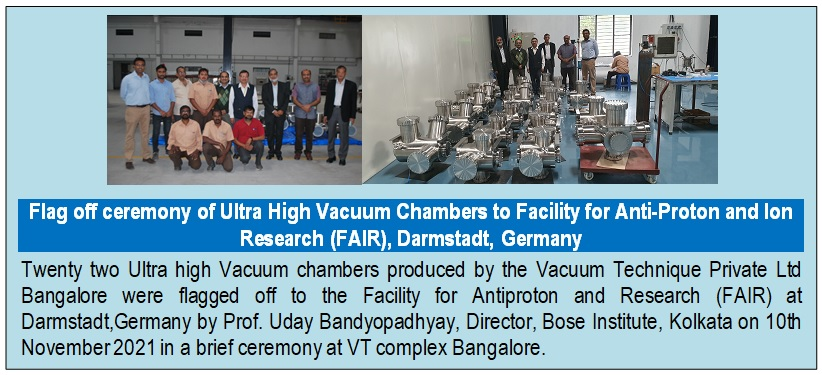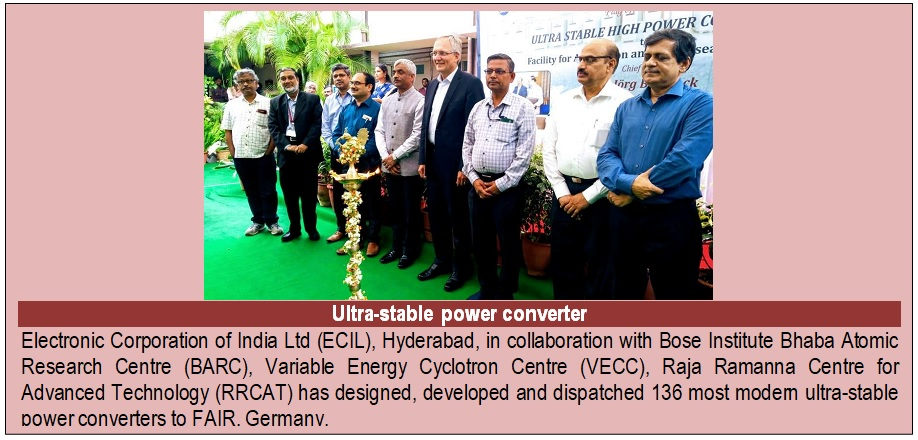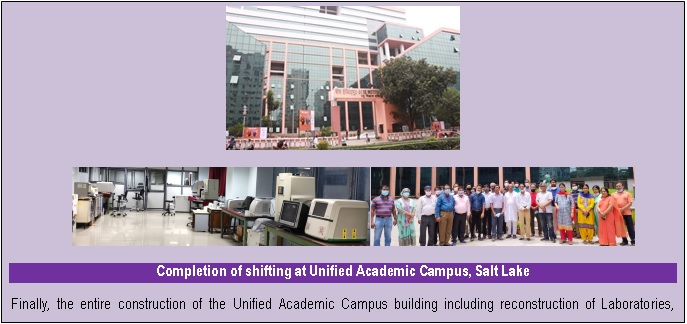The Bose Institute, or the Bosu Vigyan Mandir, is Asia’s first modern research centre devoted to interdisciplinary research. It strides ahead with achievements ranging from new treatment for severe brain disorders, neurodegenerative disorders, cancer, and infectious diseases, designing, manufacturing and supply of items for accelerator for mega-science project Facility for Antiproton-Ion Research (FAIR), Germany, to developing scientific strategies for mitigation and control of air pollution.
The institute set up by Acharya Jagadish Chandra Bose, the founder of modern science in the Indian subcontinent, has uncovered a possible treatment of severe brain disorders such as Huntington’s, Parkinson’s and Spinocerebellar complications using protein engineering and natural products. It has identified key steps in fibril formation mechanism that can be targeted for drug development for protein aggregation diseases related to Alzheimer’s, Parkinson’s, and Type-2 Diabetes.
With more than a century-old tradition of research excellence, the institute is also part of the mega-science projects overseeing the designing, manufacturing and supply of items for accelerator and also coordinating Indian scientific activities at Facility for Antiproton-Ion Research (FAIR), Germany.
It was also selected as the Institute of Repute for mitigation and control of air pollution program in West Bengal under the national clean air program of the Government of India, and a detailed study has been done of the impact of air pollution on the low lying clouds over eastern Himalaya. Bose Institute discovered environment-guided thermal endurance in natural populations of mesophilic bacteria stochastically introduced to extreme environments of Trans-Himalayan hot springs. In the realm of ecology and environment, understanding of important chemical aspects of plant-microbe interaction in the context of mangrove vegetation, and their ecological implications is one of the areas of focus of the institute.
It is also studying the possible treatment of cancer using the biomolecules present in the central nervous system (such as glycolipids GM2) as potential targets and investigating the role of regulatory RNAs in cancer: Besides, it is also involved in identification of a drug target in Mycobacterium tuberculosis, causative agent of tuberculosis and understanding of the association of homoplasy and pleiotropy with the drug-resistance of Mycobacterium tuberculosis using Genomic analysis.
The institute’s areas of research spans bioinformatics, biophysics, biochemistry, chemistry, microbiology, molecular medicine, plant biology, physics, environmental sciences, and many new and emerging areas of science.
In the area of Bioinformatics, the institute is developing databases like ClinicLSNP and DRAGdb for applications in healthcare. They have elucidated LncRNA loci harbouring SNPs for the three most prevalent female cancers in India -- breast, cervical and ovarian cancer. Using genomic approaches in agricultural sciences, the institute is developing salt-tolerant varieties of rice and disease-tolerant varieties of sesame. In physical sciences, the institute’s focus is on areas like quantum teleportation, high energy physics international collaborations (ALICE at CERN and CBM at FAIR, Germany), and cosmic ray experiments, as well as tuning of light-matter coupling in exciton-plasmon (2D-0D) hybrid system for application in optoelectronic devices.
At the time of the pandemic crisis, the institute studied the impact of over-spraying of hypochlorite solution (as surface disinfectant to stop spreading of Covid-19) on the atmospheric chemistry and public health, identified drugs/molecules that could be repurposed against COVID19, and carried out high-throughput virtual screening for repurposing drugs and their characterization with SARS CoV-2 E-protein. The institute also studied key immunologically relevant macromolecular complexes using X-ray crystallography and Cryo-Electron microscopy, giving new insights in inflammatory and autoimmune disorders.
Bose Institute, founded on November 30, 1917, houses three Centres--- Centre for Biotechnology Innovation, Centre of Excellence in Bioinformatics, and Centre for Astroparticle Physics and Space Science and is forging several National and International collaborations.
It looks forward to spread its wings to design and plans to investigate the basic mechanisms of non-coding RNAs in the pathogenesis of cancer, elucidates possible approach to find out interconnection of anthropogenic factors and antibiotic resistance in natural environment, plans to perform a meta-analysis of lung microbiome of different lung diseases, develops methods towards synthesis of carbohydrate-based anti-microbial vaccine candidates as well evolves 2D semiconductor materials based light-harvesting device.


































